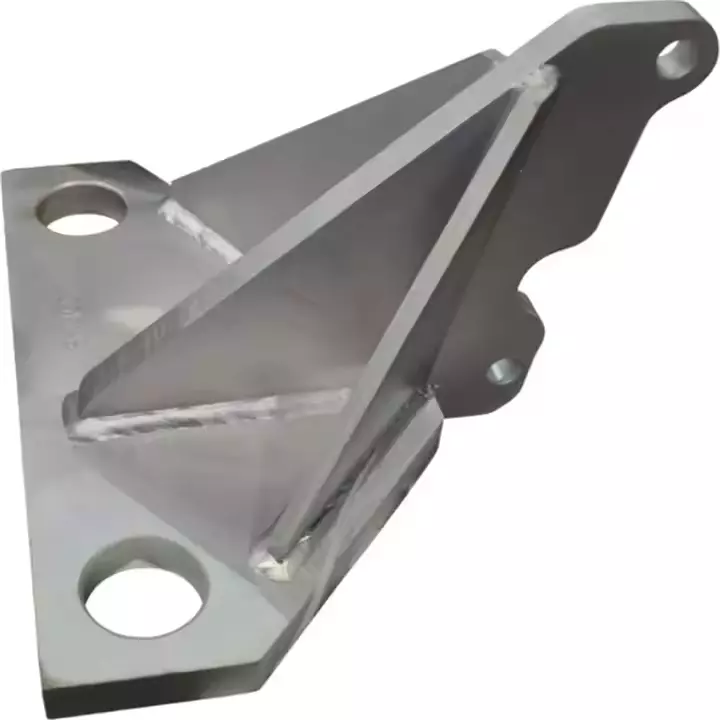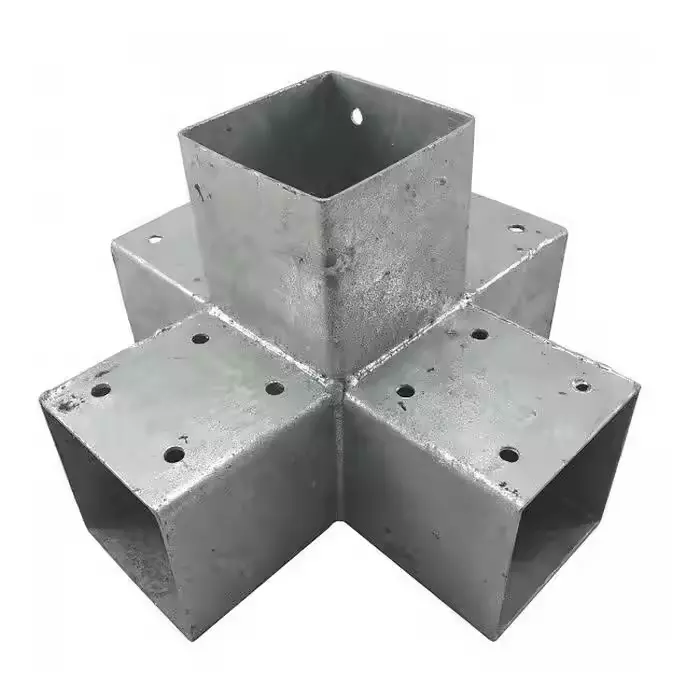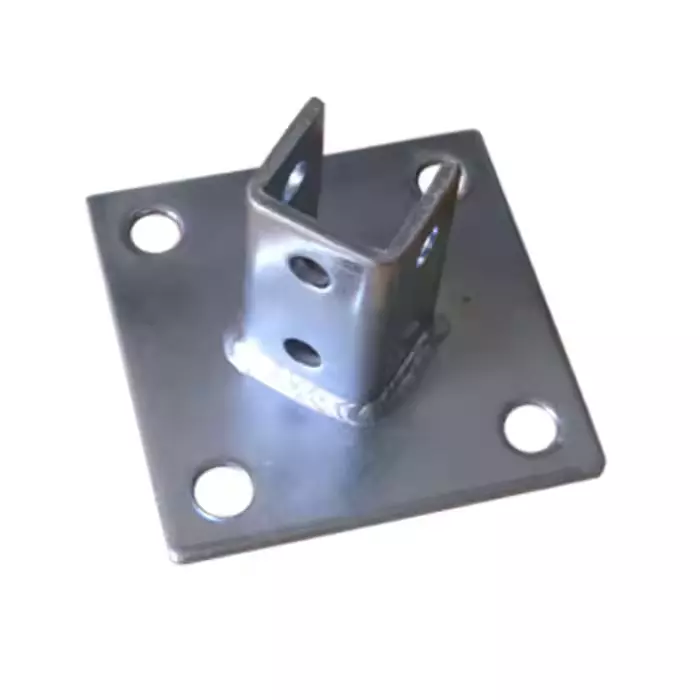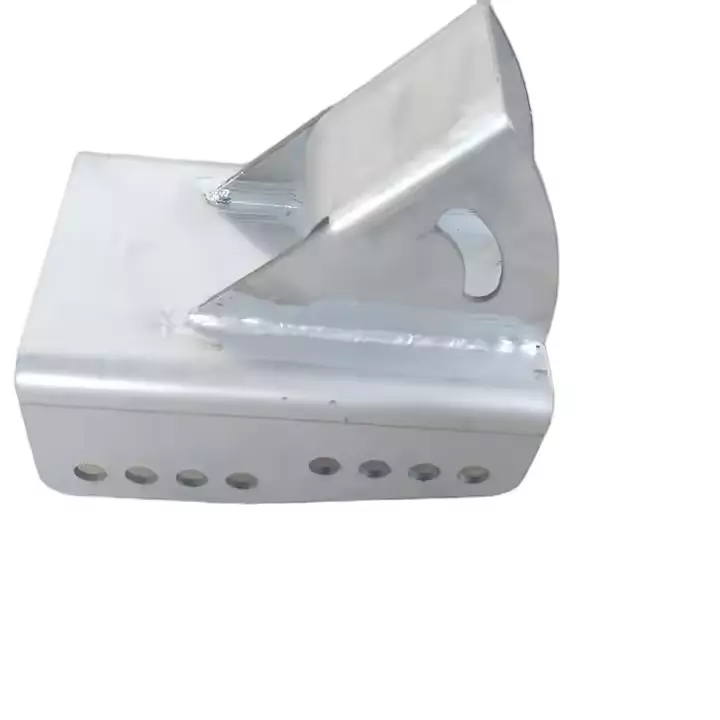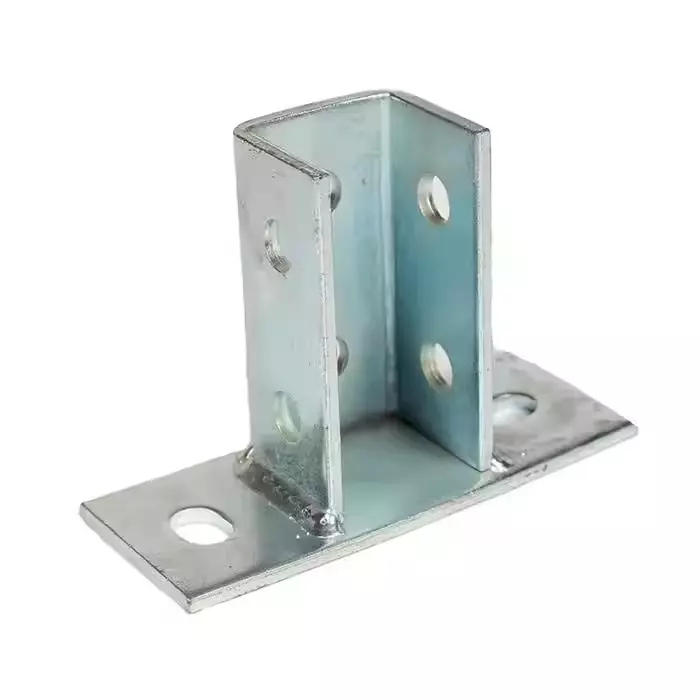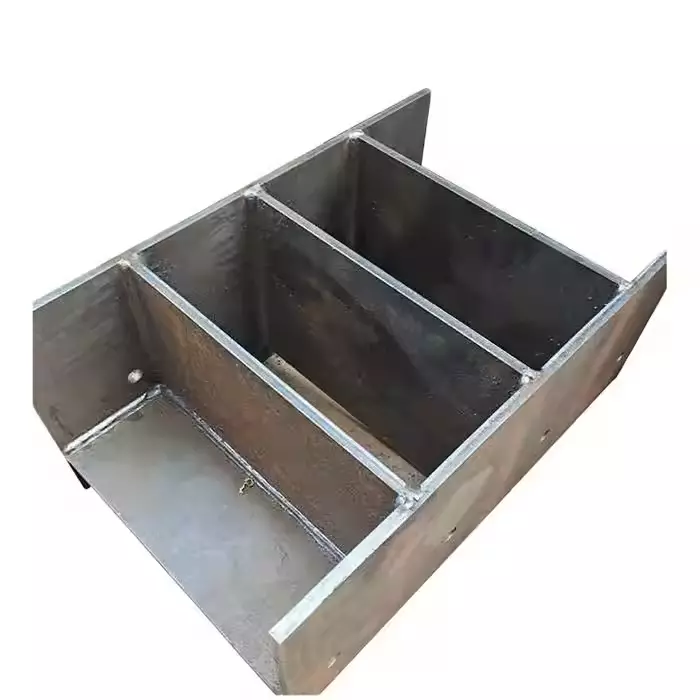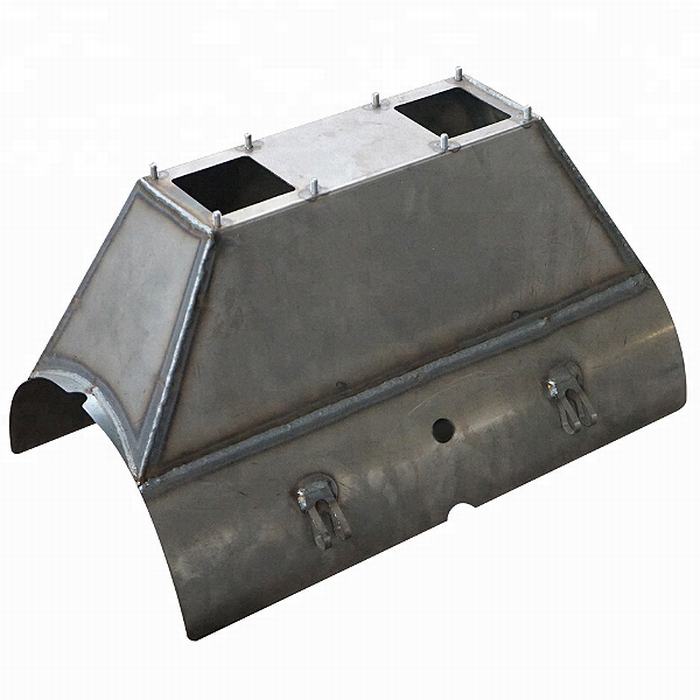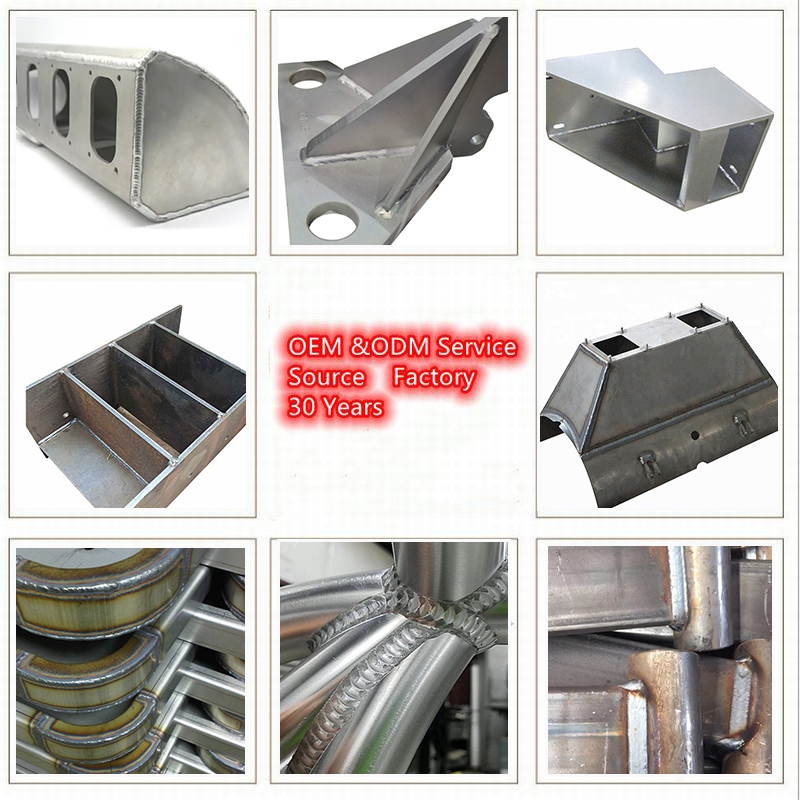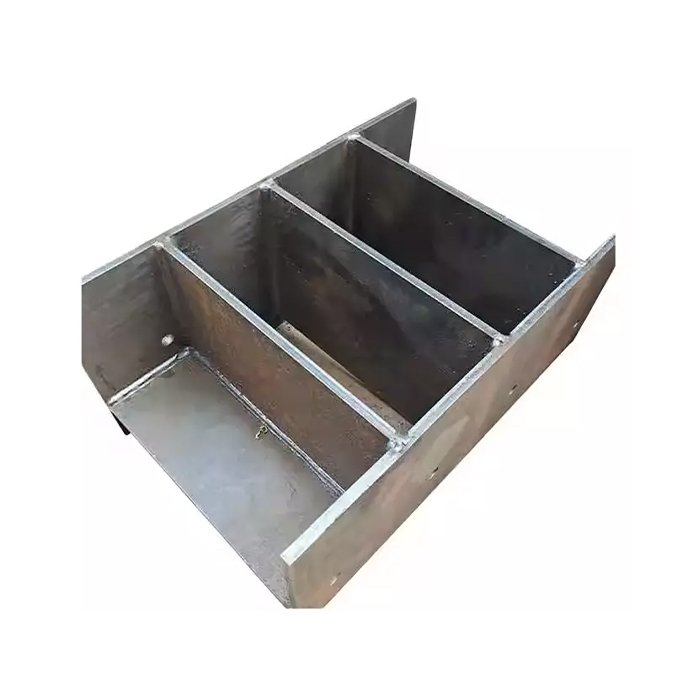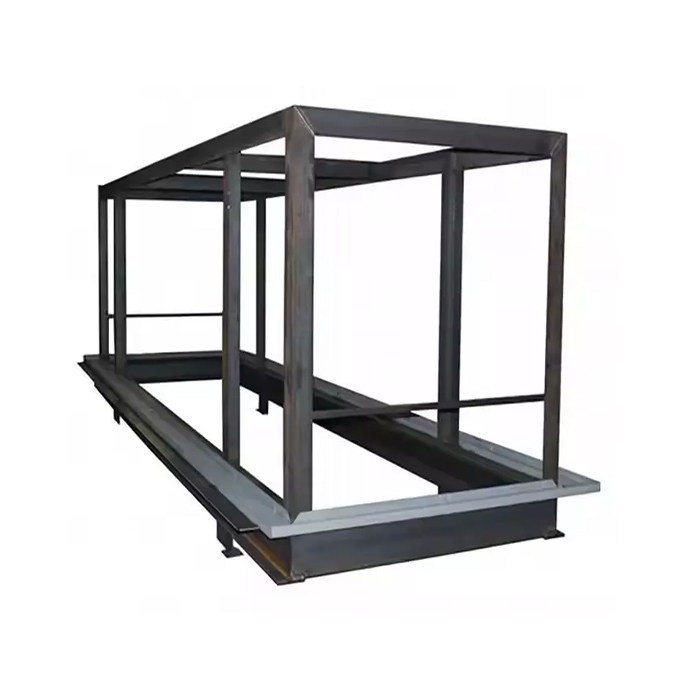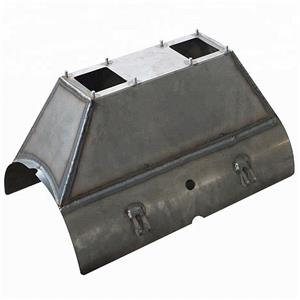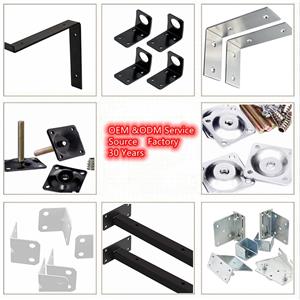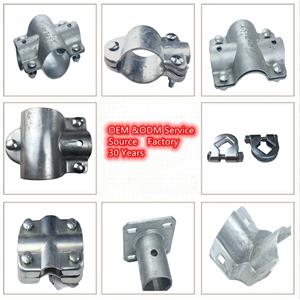OEM Welding Assembly Manufacturer Supply Custom Sheet Metal Fabrication Parts

In the realm of custom metal solutions, the expertise of a welding assembly manufacturer plays a critical role in transforming sheet metal into complex, functional components. With rising demand across multiple industries for high-quality metal structures, manufacturers that specialize in welding assemblies provide essential services for everything from housing structures to load-bearing frames. This product focuses on delivering fully customized sheet metal fabrication parts, integrated with welding assembly capabilities tailored to specific structural, functional, and application-driven requirements.
Key attributes
Other attributes
Lead time
| Quantity (pieces) | 1 - 5000 | > 5000 |
| Lead time (days) | 30 | To be negotiated |
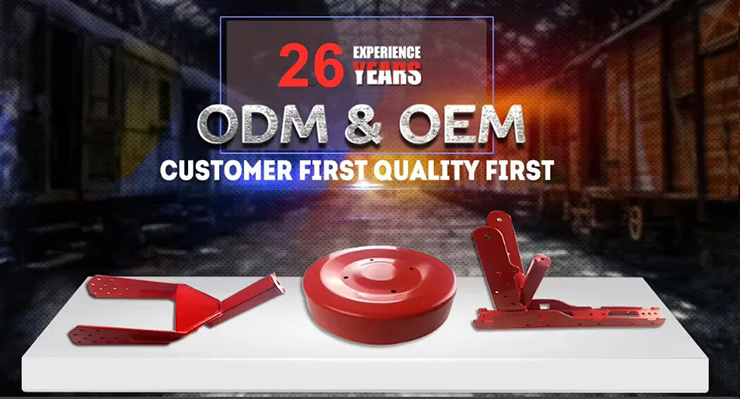
| Tooling/Molding | Progressive Stamping Tooling or Single Stamping Tooling,or Robot stamping tooling |
| Drawing Format | DWG, PDF, DXF, STEP, IGS, JPG etc. |
| Materials | Spring Steel, Carbon Steel, Stainless Steel, Aluminum, Brass, etc 1) AL1060, AL6061, AL6061, AL5052 2) Steel, mild steel, SPCC 3) SS201, SS303, SS304, SS316, SS316L 4) SPTE, galvanized sheet 5) Brass, copper |
| Thickness | 0.3 -15 mm |
| Surface Finish | Heat Treatment, Plating, Powder Coating, Electrophoresis, Anodizing, HDG, Decromet |
| Tolerance | As requests |
| Certificates | ISO 9001:2015 |
| Process | Blanking, Stamping, Forming, Welding, Packing, Shipping |
| Packing | Carton Box + Plywood Pallet, Plywood Box with Plastic bag |
| Capacity | 500,000pcs / Week, Depends on specific parts |
In the realm of custom metal solutions, the expertise of a welding assembly manufacturer plays a critical role in transforming sheet metal into complex, functional components. With rising demand across multiple industries for high-quality metal structures, manufacturers that specialize in welding assemblies provide essential services for everything from housing structures to load-bearing frames. This product focuses on delivering fully customized sheet metal fabrication parts, integrated with welding assembly capabilities tailored to specific structural, functional, and application-driven requirements.
1. Integrated Welding and Sheet Metal Fabrication
One of the key strengths of a professional welding assembly manufacturer is the ability to integrate welding and sheet metal fabrication seamlessly. This integration allows for optimized workflows that combine laser cutting, bending, forming, and welding into a continuous production process. It enables precise alignment of individual components before welding, reducing the risk of misalignment and enhancing the final product's structural consistency.
The welding assembly manufacturer ensures that all fabricated parts conform to design intent through proper fixture development and welding sequencing. Especially in complex geometries, the fusion of cutting and welding within a controlled environment helps to achieve both structural and dimensional stability, which is crucial for reliable assembly outcomes.
2. Design Optimization and Functional Engineering
Collaboration between engineers and a welding assembly manufacturer during the early stages of product development leads to better design outcomes. Design optimization plays a pivotal role in minimizing weld distortion, improving material usage, and facilitating easier assembly. Manufacturers often assist clients in revising drawings to make them more suitable for production, especially when incorporating welding assembly.
Designs involving tabs, slots, and weld-prep features are common practices. These allow welding assembly manufacturers to minimize clamping requirements and streamline joint alignment. Additionally, functional testing of welded assemblies is often embedded within the development process to confirm load-bearing capacity and mechanical reliability under real-world conditions.
Properly engineered welded structures reduce downstream complications and improve durability, especially when the fabricated components are destined for automotive brackets, equipment enclosures, or industrial support frames.
3. Material Versatility and Structural Applications
A competent welding assembly manufacturer works with a wide range of materials, including carbon steel, stainless steel, and aluminum. Each of these materials brings different properties, such as corrosion resistance, weight-to-strength ratio, and thermal conductivity, making material selection a strategic aspect of fabrication.
By understanding how different materials respond to cutting, forming, and welding, a welding assembly manufacturer can customize processes that maintain structural integrity and appearance. For instance, stainless steel requires controlled heat input to prevent discoloration and warping, while aluminum needs precise shielding to avoid porosity in welds.
These capabilities ensure that welded sheet metal assemblies can meet application needs in fields like HVAC, automation, furniture, electrical enclosures, and transport systems, where longevity and reliability are non-negotiable.
4. Process Control and Assembly Accuracy
Precise control over the welding process is fundamental to any welding assembly manufacturer. Advanced welding equipment, including MIG, TIG, spot welding, and robotic welding arms, enables consistency and speed in production. In sheet metal fabrication, even minor deviations in welding can result in alignment issues, warping, or reduced load-bearing capacity.
By utilizing jigs and fixtures, manufacturers maintain repeatable results across large production batches. Inspection protocols are enforced throughout production, with visual inspections, weld penetration checks, and surface quality evaluations included at various checkpoints.
Furthermore, a professional welding assembly manufacturer implements process control documentation, traceability, and operator certification systems, ensuring that all welded parts conform to industry expectations for dimensional accuracy and mechanical performance.
5. Customization, Batch Flexibility, and Industry Applications
The most effective welding assembly manufacturer offers both small-batch and mass production capabilities, ensuring that clients from various industries can access tailored solutions without compromising on lead time or quality. Custom sheet metal parts can vary from simple brackets to complex multi-surface enclosures, all of which require flexible handling based on production volume and design variation.
For industries like telecommunications, construction, electronics, or agriculture, tailored sheet metal assemblies with welded joints serve as critical components in devices, structures, and machinery. These applications demand not only high precision but also fast turnaround and cost-effective solutions — requirements that a skilled welding assembly manufacturer is equipped to deliver.
Additionally, surface treatments such as powder coating, galvanizing, or polishing may be added after fabrication to meet specific performance or aesthetic criteria. The ability to integrate post-processing into the workflow further streamlines production and ensures ready-to-install finished assemblies.

